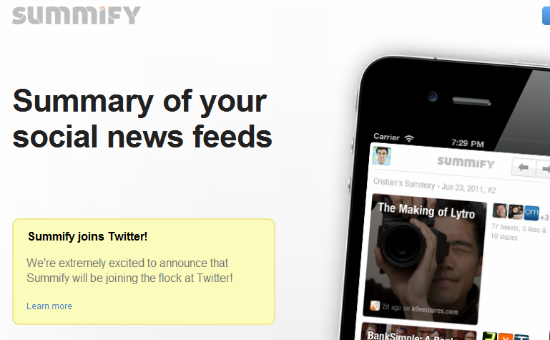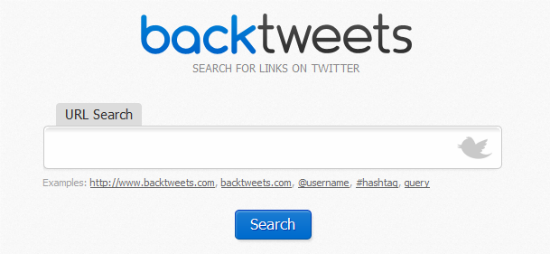
When Facebook purchased Instagram earlier this week, the resounding sentiment was one of anxiety. Avid Instagram users immediately announced they were deleting their accounts while others pleaded for Facebook not to change or “kill” the application. By now, this type of anxious, confused response to a start-up’s acquisition has become familiar; the acquisition announcement now marks the tipping point in a digital cycle we’ve all come to know quite well
- Hear about a useful new application or service, try it out and love it
- Start using the service more frequently, recommend it to friends and grow to depend on it
- Wake up one morning to a glowing announcement on the app’s site that “We’ve been acquired by Facebook/ Twitter/ Google/ Microsoft/ Apple/ Amazon…!” and shortly thereafter…
- Mourn the app’s closing while frantically searching for a similar one to replace it (and never finding one quite as good)
- (Repeat)
It’s pointless to question why the acquired company allows itself to be purchased. Most of them know that the fruit of their blood, sweat, and tears will be reduced to an acquisition notice frozen in time; yet when that Godfather-offer is placed at their feet one can only imagine how difficult it must be to refuse. Other than those with obvious answers, the cycle raises some other important questions: Why purchase a profitable, marketable service just to shut it down? Who holds the responsibility towards existing users who are left behind after a shut down? And finally, how does this acquisition pattern affect the relationship between start-ups and potential users?
Companies such as Facebook, Twitter, Google etc. are transparent in their motivations for acquiring successful startups and then killing their products. As Mark Zuckerberg explained during a speaking engagement at Y Combinator’s Startup School in 2010, “We [Facebook] have not once bought a company for the company. We buy companies to get excellent people….” The talent acquisition Zuckerberg explains has come to be known as the “acqui-hire” and is increasingly commonplace since 2010.
Most recently (in December), Facebook acqui-hired Gowalla, a Foursquare-like social network, and speculation abounded as to what would happen to the service itself. Only a few weeks ago a heartfelt goodbye replaced Gowalla’s homepage, signaling what most people already knew would occur.

Simply put, acquirers are often just not interested in the acquired company’s product. To the acquirer the product is just proof of the acquired employees’ worth as new, high-rank hires. Yet what about the dedicated users who are left behind after an acqui-hire shut down? Less discussed is the trail of user anger, frustration and anxiety which an acqui-hire leaves in its trail.
In January, Summify, a start-up which “…creates a beautiful daily summary of the most relevant news from your social networks…” joyfully announced that they had been acquired by Twitter and posted a short FAQ explaining: “We will be disabling new account registrations immediately and we will also be removing some features. We will keep the email summaries for a few more weeks, but at some point we will shut down the current Summify product...”

Of the 308 responses to the announcement many were congratulatory, yet many others were of a different tone and echoed the following sentiments:
While I’m really happy for you guys, I’m really upset that you seem to be shutting down the whole Summify experience. I’ve come to depend on the iPhone app, and I’m in shock that it’s going away. Is there no way that Twitter will allow you to keep the app going?January 19, 2012
Max #There’s got to be a way to keep the service up and running. This is so disappointing and is a real ugly move for your users who rely on Summify and would have come along as you grew and monetized it. So disappointing.January 19, 2012
Wow. One could only wish us all to be so happy, but it is clear Summify’s announcement does little more than throw its committed users under the bus. What a shame to have grown such an engaging, dedicated, and trusting community of users—a daunting ordeal envied by all startups—only to backhand everyone in the process. And unfortunately, the growing disappointment and anger easily rubs off onto Twitter for being viewed as the key player initiating the acquisition. Sad.January 19, 2012
So many of the responses to the announcement reflected the above sentiments that the company felt compelled to issue an update to the announcement stating:
“Thanks for your notes of congratulations. We’re thrilled to be joining Twitter. Some of you have expressed concerns about the product being shut down. We appreciate your support and enthusiasm….”
Needless to say the update gives little solution or comfort to those disappointed users who feel used and abandoned. Unfortunately, the acqui-hire product shut down doesn’t end there. About two weeks ago Posterous, announced that it had been acquired by Twitter and in their announcement included the following statement:
“Posterous Spaces will remain up and running without disruption. We’ll give users ample notice if we make any changes to the service. For users who would like to back up their content or move to another service, we’ll share clear instructions for doing so in the coming weeks."

The announcement set off familiar alarms for many users and amassed 850 comments. Along with the usual congratulatory replies were an unavoidable number of confused, frustrated and anxious responses:
Mark David Zahn responded:Don't like the sound of this at all. Twitter ruined Tweetdeck. Better not happen to Posterous. I just spent a ton of time moving everything I had from Tumblr.
This may sound odd because it's a free platform but I feel slightly betrayed by all this…
Mauricio responded:Annnd that's a wrap for Posterous.This is your "ample time notice" guys. Get cracking on "exporting your content"...
Joe Ross responded:I hope this isn't another one of Twitter's acquire and kill/ignore or dis-innovate maneuvers. See: TweetDeckDouglas Craver responded:I hope you guys can turn around what has been the Twitter track record of ruining the technology it acquires. Posterous is a much more innovative platform for expression and I pray I don't have to waste a week moving my numerous SPACES to another platform in the future. If Twitter is wise it will provide deeper integration and use Posterous to grow an actual community of engaged users vs. a community of narcissistic users.
Note: Comments were disabled for Gowalla’s acquisition announcement.
Many of the Posterous responses equated the takeover to Twitter’s purchase of TweetDeck. Although TweetDeck continues to exist, it was stripped of many of the features which made it so popular with users (i.e removal of Deck.ly which enabled a user to tweet things longer than 140 characters).
You might be saying to yourself “It’s business, it’s not personal and this is how things work in the world of the start-up.” That may be true, but the acqui-hire phenomenon has deeper reaching effects that need to be considered.
Every time a successful start-up is purchased by a larger company and its product is thrown aside or stripped down it chips away at the basic trust that a user places in a new start-up as well as in the larger company. If a user comes to think of start-ups as experimental, temporary services who will sell themselves, their product and their user base to the highest bidder (as many start-ups are exemplifying), less and less people will be willing to make the necessary leap of faith alongside a new start-up; and the trust between the user and the acquiring company also gets damaged. This general sentiment of distrust is beginning to seep deeper into the general consciousness as was pointedly summed up by a hurt and disappointed Summify user:
Andy #It’s impossible to trust apps like this. I’ve been through the experience before, here today and gone tomorrow. They think nothing of pulling the rug out from underneath you. Like I said, there’s no incentive to start using any of these apps anymore.January 19, 2012
Despite the air of disappointment and frustration there are rare instances when an acqui-hire shut down doesn’t succeed in crushing the acquired company’s product. In July of 2011 Twitter acquired the company BackType, and with it the service BackTweets which for $100/ month allowed users to search for URLs in a tweet history. As expected, BackTweets was shut-down shortly after the acquisition. However, this month the BackTweets.com domain was purchased after it unexpectedly went to auction and the service was revived, FOR FREE!

Needless to say, the responses were a refreshing change from the previous responses BackTweets was receiving:
Hey, there's a new http://t.co/ElIBOMfq!
#Twitter bought it just 2 take it down. Some1 brought it back to life! http://t.co/S64Kcg7V
For old BackTweets users the revival must certainly be a breath of fresh air- I just can't help wondering how Twitter feels.
0 nhận xét:
Post a Comment